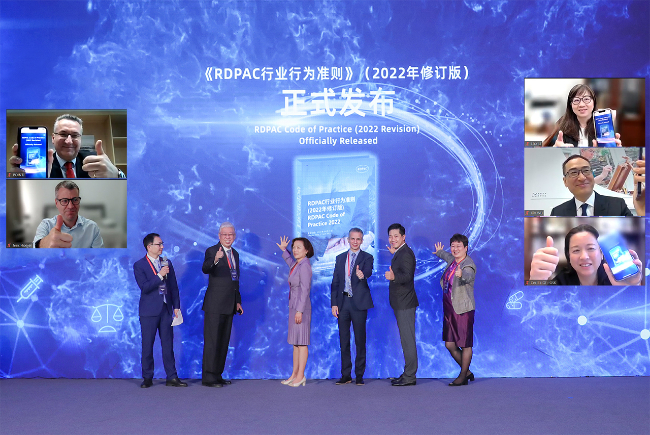New RDPAC Code of Practice released


Pharmaceutical enterprises in China are expected to upgrade and improve corporate compliance systems to meet new compliance challenges arising from the ongoing healthcare reform and the digitalization of the industry, according to industry people.
They made the remarks after the R&D-based Pharmaceutical Association Committee of China Association of Enterprises with Foreign Investment recently unveiled the 2022 Revision of the RDPAC Code of Practice in Beijing.
Approved through a vote involving 45 corporate members, the RDPAC Code of Practice (2022 Revision) will come into effect on April 1, 2023.
The new Code has added provisions covering interaction between corporate members and patients and patient organizations, strengthened oversight in support of healthcare professionals, and imposed more detailed requirements on the review of speakers' presentations.
It has also added compliance controls for exclusive sponsorships, raised the level of due diligence for health care organizations, and added contents related to interaction with patient organizations.
Industry experts and business leaders said that for pharmaceutical companies, compliance is the key to sustainable development and long-term competitiveness.
"As the integration of medical care, medical insurance and medical reforms continues to intensify, the development of patient-centric values plays a critical role in the healthy development of the industry," says Laiying Fang, vice-chairman of the Chinese Hospital Association.
"People's life and health can be better protected when a compliant market environment of fair competition is created. The revision of the Code is a reflection not only of the industry's adaption to change, but also of the vitality and future of the pharmaceutical industry," Liang said.
Jean-Christophe Pointeau, chairman of RDPAC Executive Committee and president of Pfizer Biopharmaceuticals Group China, said many pharmaceutical companies have been adopting business operation innovations and new collaboration modes with partners like medical institutions to ride the tide of internet and digital tools, under the background of regulatory reforms and new market conditions.
The new code is designed in accordance with the latest industry trend and compliance practices of relevant enterprises, to provide member enterprises a practical compliance standard to follow, according to him.
He expects relevant enterprises will keep their commitments to Chinese patients and medical workers, and grow their business in China in a rule-abiding and transparent manner to become important and responsible participants of the pharmaceutical industry in China.
Feng Lan, secretary-general of the China Pharmaceutical Innovation and Research Development Association, said compliance is an important factor in creating a good environment for innovation. "As pharmaceutical innovation in China prepares to enter a new stage, we remain committed to promoting compliance within the industry, and been closely following the changes in global codes of practices," he said, adding the new RDPAC code of practice is expected to spearhead the development of compliance among innovative drug producers in China.




































